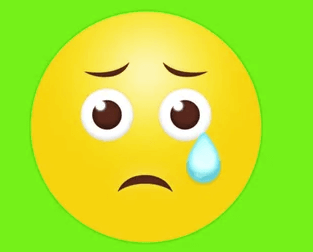Emoji:9cnmlkc6r7q= Depressed

The emergence of the depressed emoji as a prominent feature in digital communication raises important questions about its role in expressing emotional distress. This seemingly simple icon encapsulates complex feelings, yet its implications for mental health awareness are profound. As individuals increasingly turn to social media to articulate their emotional struggles, the emoji serves not just as a reaction, but as a catalyst for broader conversations about mental health. What does its widespread adoption reveal about our collective understanding of mental health, and how might it shape future dialogues around emotional well-being?
Understanding the Depressed Emoji
The depressed emoji serves as a poignant representation of emotional distress, encapsulating feelings of sadness and despair in a single, recognizable symbol.
Its emoji symbolism plays a crucial role in emotional expression, enabling individuals to convey complex emotions succinctly.
See also: Emoji:9ciasdnu6a0= Flirting
Impact on Mental Health Awareness
Utilizing the depressed emoji has significantly contributed to the broader discourse surrounding mental health awareness.
Its prevalence on social media platforms underscores its cultural significance, enabling individuals to express their feelings openly.
This visual representation fosters connections and reduces stigma, encouraging dialogue about mental health struggles.
As a result, the emoji serves as a vital tool in promoting understanding and empathy in our communities.
Using Emojis in Communication
Emojis have transformed communication in the digital age, with over 3,000 available options that allow users to convey emotions and ideas succinctly.
These emoji expressions enrich digital communication by providing visual context, enhancing understanding, and fostering connection.
As individuals seek freedom in self-expression, emojis serve as a powerful tool, bridging gaps in language and conveying nuanced feelings that words alone may fail to capture.
Encouraging Conversations About Feelings
Open dialogue about feelings is essential for fostering emotional well-being and strengthening relationships.
Encouraging emotional expression allows individuals to seek feelings validation, promoting a sense of understanding and community.
By creating safe spaces for discussion, we empower others to share their experiences, leading to healthier interactions.
Such conversations dismantle stigma, enabling a culture where emotional authenticity is valued and appreciated.
Conclusion
The depressed emoji serves as a digital mirror reflecting the complexities of emotional distress, fostering a shared understanding among individuals. By bridging gaps in communication, this symbol cultivates empathy and dismantles stigma surrounding mental health. Its ubiquitous presence on social media facilitates open dialogues about feelings, transforming isolated experiences into collective narratives. In this way, the depressed emoji not only represents sadness but also acts as a beacon of connection, encouraging communities to engage in meaningful conversations about emotional well-being.




